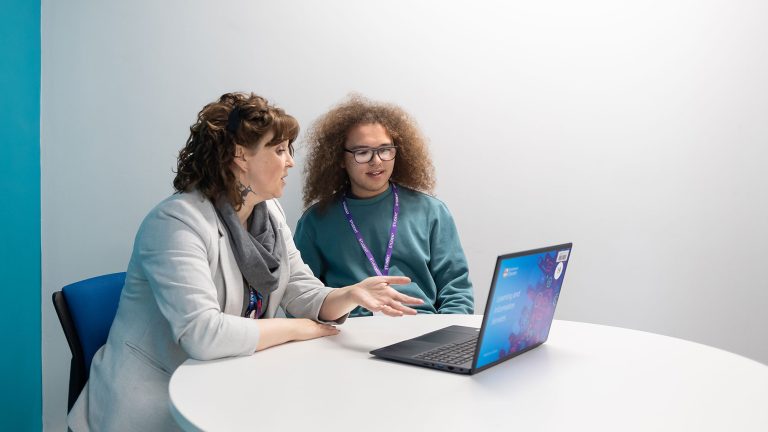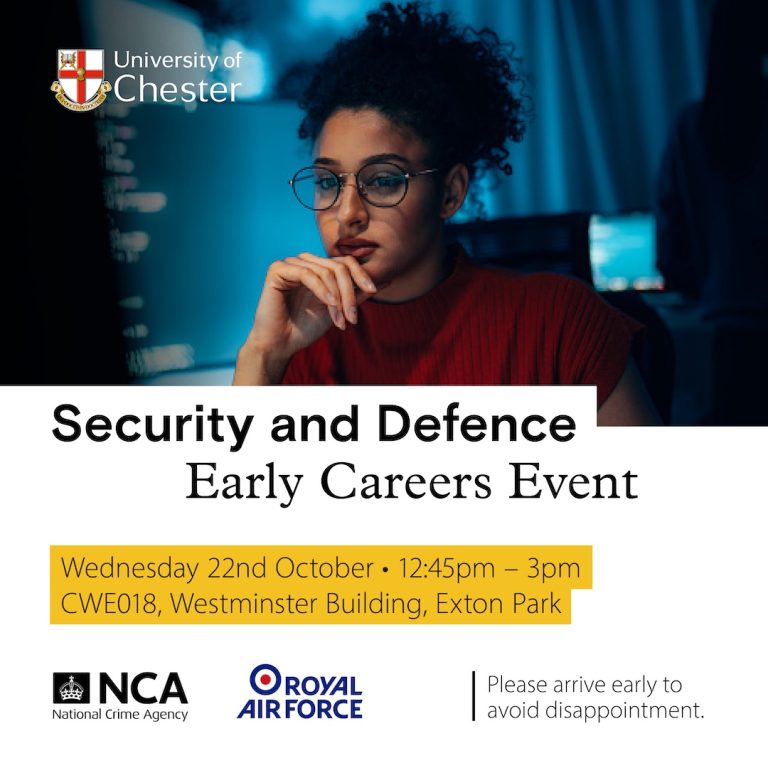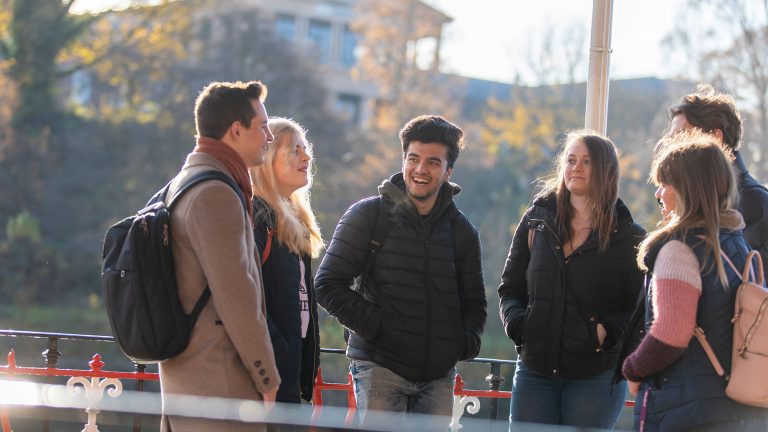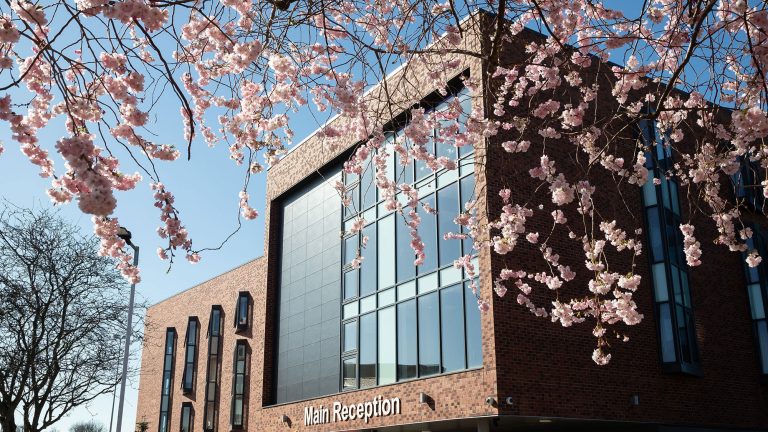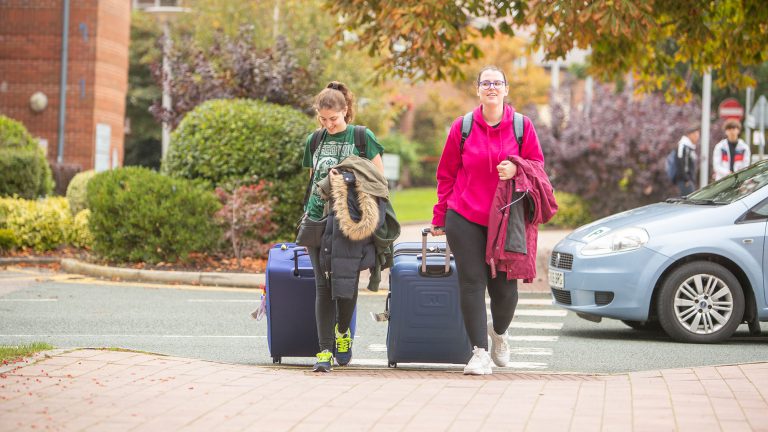The University of Chester is committed to ensuring our sites provide a safe and inclusive environment for all. We do not tolerate forms of unacceptable behaviours such as discrimination, harassment or abuse. Everybody has the right to study, work and live in an environment where they feel safe and respected.
It is important that University staff, students and visitors:
- Feel comfortable in reporting incidents
- Feel able to challenge any discrimination or harassment they may encounter
- Feel supported by both the University and the Students’ Union in dealing with reports effectively
- Be open-minded and always treat others with fairness and respect
You report, and we will support.
If you or someone you know has experienced abuse such as sexual violence, domestic abuse, harassment, bullying or discrimination, it is not your fault and help is available.
- Student Services – T: 01244511550
Domestic Abuse
Domestic abuse is any incident, or pattern of incidents, of abusive and controlling behaviour. This can include, but is not limited to, the following:
- Psychological or emotional abuse
- Financial or economic abuse
- Coercive control – an act or pattern of acts of intimidation, degradation, isolation and control with the use of physical or sexual violence
Remember, Domestic Abuse is NOT just physical violence
Additional support:
Discrimination and Hate Crime
Hate Crime
The law recognises five types of hate crime on the basis of:
Any crime can be prosecuted as a hate crime if the offender has either:
- Demonstrated hostility based on race, religion, disability, sexual orientation or transgender identity or
- been motivated by hostility based on race, religion, disability, sexual orientation or transgender identity
Someone can be a victim of more than one type of hate crime.
Discrimination
Discrimination means treating someone ‘less favourably’ than someone else, because of:
- marriage and civil partnership
These are called ‘protected characteristics’ which are outlined in the Equality Act 2010.
Additional support:
Sexual Violence and harassment
Sexual harassment
Sexual harassment is unwanted behaviour of a sexual nature which:
- Makes you feel intimidated, degraded or humiliated.
- Creates a hostile or offensive environment.
You don’t need to have previously objected to someone’s behaviour for it to be considered unwanted.
Forms of sexual harassment can include:
- Sexual comments or jokes.
- Physical behaviour, including unwelcome sexual advances, touching and various forms of sexual assault.
- Displaying pictures, photos or drawings of a sexual nature.
- Sending emails with a sexual content.
Sexual Violence
Sexual violence, such as sexual assault and rape are acts of a sexual nature that are conducted intentionally without consent. Acts can involve kissing, groping, fondling, penetration, rape and acts that can be violent or non-violent.
A person consents to a sexual act if they agree by choice and have the freedom and capacity to make a choice. Freedom to give consent means a person is not constrained in any way to agree to sexual activity.
Having the capacity to give consent means a person can make and communicate a decision, understand the consequences, and know that they have a choice.
Giving consent to one act is not consent to all, and consent can also be withdrawn at any time.
Sexual assault and rape are sexual offences.
Additional support:
Bullying and Harassment
Bullying may be characterised as offensive, intimidating, malicious or insulting behaviour, or misuse of power through means intended to undermine, humiliate, denigrate or injure the recipient.
Harassment is defined as unwanted and unwarranted conduct that has the purpose or effect of violating another person’s dignity, or creating an intimidating, hostile, degrading, humiliating or offensive environment for another person.
Bullying or harassment can happen:
- Face to face verbally or physically, online, in writing or in calls
- At work or in other work-related situations
- As a one-off or a pattern repeated behaviour
The recipient does not need to have explicitly stated the behaviour was unwanted and the intentions of the alleged harasser don’t always determine whether harassment has taken place.
And it’s possible someone might not know their behaviour is bullying. It can still be bullying even if they do not realise it or do not intend to bully someone.
Examples of behaviour could include:
- unwanted physical contact
- any behaviour of a sexual nature that takes place without consent and with no reasonable grounds for believing there was consent, including inappropriate body language, sexually explicit remarks or innuendoes, or unwanted physical conduct, such as sexual advances and touching without consent
- offensive comments or body language
- insulting, abusive, embarrassing or patronising behaviour or comments
- persistently shouting at, insulting or threatening an individual
- constantly criticising someone without providing constructive support
- posting offensive comments on social media
- isolation or exclusion from conversations or social events
- publishing, circulating or displaying offensive pictures or other materials.
Additional support:


